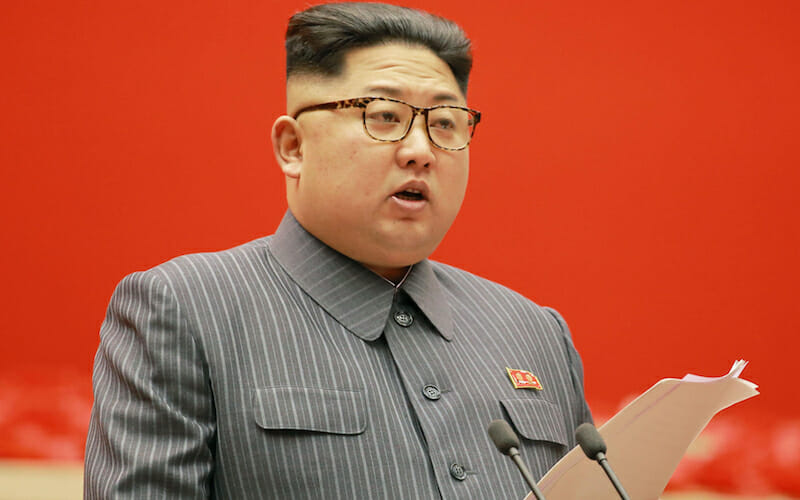
The UN, North Korea and the Scourge of Human Trafficking
On June 28th, the U.S. State Department released its annual Trafficking in Persons Report (TIP). The Secretary of State, Mike Pompeo, and the president’s daughter, Ivanka Trump, calmly took to the podium to discuss the report. The release of this year’s report, mandated by Congress under the Trafficking Victim Protection Act (TVPA) of 2000, came shortly after the president met with Kim Jong-Un in Singapore. There is no way of knowing if the issue of human rights was addressed, but the prevailing wisdom indicates it was not. The TIP ranks each nation according to tiers – one being the best, three is the worst. This year’s TIP report placed North Korea under Tier 3 for failing to meet the standards set forth by the TVPA.
The United Nations plays a vital role in halting human trafficking. To raise the visibility of this issue, each year it dedicates July 30th as World Day against Trafficking in Persons. Human trafficking is a global problem that does not respect borders. Traffickers are cunning and manipulative preying upon society’s most vulnerable. Oftentimes victims are led to believe they are being brought to a country to find a better life; in most cases, the opposite is true. These people lose their identity and are forced into slavery. This problem often remains invisible as those who are affected are marginalized peoples of the world. However, loyal people of good conscience at the UN are shedding light where darkness resides.
UN agencies such as the International Labour Organization (ILO), International Organization for Migration (IOM) have partnered with the Walk Free Foundation to educate the global community regarding the heinous nature of trafficking through the publication of the Global Slavery Index. In 2016, the ILO estimated there were 40.3 million human trafficking victims worldwide; 24.9 million people in forced labor and 15.4 million in forced marriage. For every 1,000 people, 5.4 are victims of modern slavery with 1 in 4 a child. It is estimated that human trafficking is a $150 billion global industry. The data reflects the fact that the disproportionate number of victims of trafficking (71%) are women and girls, according to the Walk Free Foundation.
The 2018 Global Slavery Index indicates two factors driving the problem of modern-day slavery: (1) “highly repressive regimes, in which populations are put to work to prop up the government;” (2) “conflict situations” resulting in a breakdown of the rule of law, “social structures, and existing systems of protection.” Nowhere is human trafficking more prevalent than in North Korea; it has the unenviable distinction of residing at number one in this year’s Index.
In 2014, the Commission of Inquiry (COI) – authorized by the UN Human Rights Council – was charged with the task to investigate the serious human rights violations occurring inside North Korea “with a view to ensuring full accountability, in particular for violations which may amount to crimes against humanity.” The Global Slavery Index indicated that up to one million North Koreans are performing slave labor for the Kim regime. For North Korea, the exporting of slave labor has increased during the reign of Kim Jong-Un. Workers from the Democratic Republic of Korea (DPRK) are estimated to be working in 45 countries across Asia, Africa, the Middle East, and Europe.
The workers toil long hours for menial wages with approximately 80 percent sent back to the DPRK. North Korea generates about $2.3 billion through this practice. This revenue continues to maintain its economy as well as its nuclear program. In addition, there are close to 500,000 DPRK workers who labor in Russia and China netting North Korea about $120 million. In Russia, it is reported that many of the venues for the 2018 World Cup Soccer Tournament were built by slave laborers. In China, workers process seafood which ultimately ends up in markets in the U.S. despite being a violation of U.S. federal law.
In October 2017, a UN human rights panel convened to investigate Pyongyang’s practice of using child labor in farming, mining, and construction. The panel cited reports of children being returned from China and subjected to torture and violence.
The problem of modern-day slavery is a global issue requiring a united and concerted global response. The release of reports such as TIP are important, but simply citing a country must change its behavior is not enough. The financial incentive for countries – like North Korea – to engage in this heinous practice must end if real change is to occur.
In December 2016, the human rights advocacy organization – Human Rights First – authored a document titled, “How to Dismantle the Business of Human Trafficking,” with the purpose of serving as a guide for policymakers and business people to follow to address this multi-billion- dollar enterprise.
One of the suggestions focuses on the economic benefits driving human trafficking. To accomplish this requires both public and private partnership. The authors point out that the U.S. government needs to protect “workers through better procurement policies and partnerships with companies to replicate those policies where practical.” Moreover, access to U.S. markets must be denied for the perpetrators of these crimes. As the largest purchaser globally of goods and services, the U.S. must ensure that the contracts they engage in are “free of human trafficking.” The U.S. and the international community owes as much to the victims of these human rights violations.

